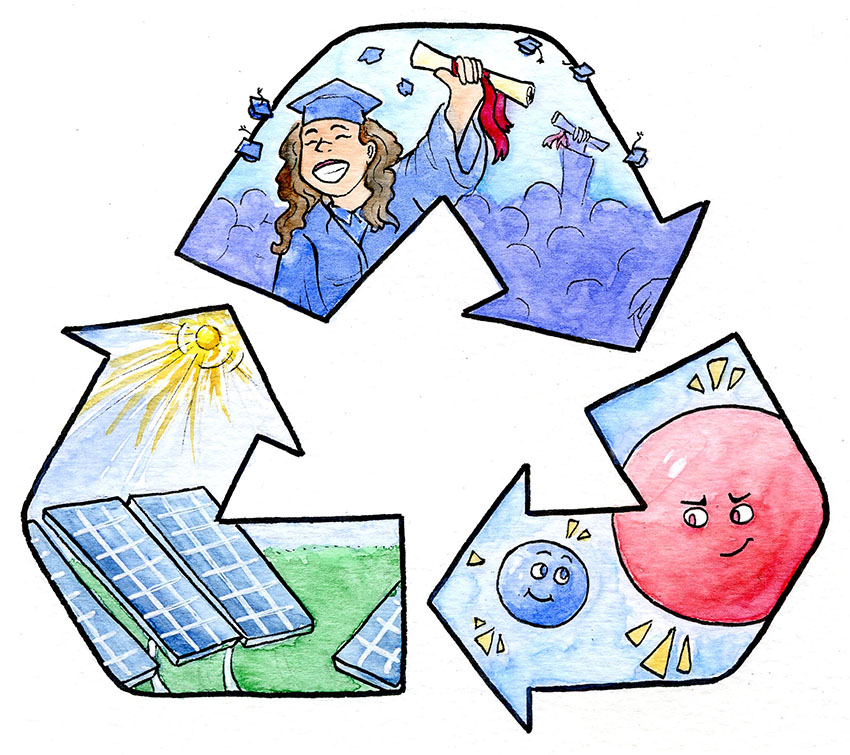An award from the National Science Foundation will help Sean Roberts, UT chemistry assistant professor, introduce community college students to UT chemistry research.
On Jan. 26, the foundation awarded Roberts with the Faculty Early Career Development award. This award comes with a 5-year grant, which Roberts said will help him support and grow a research program called GREAT, which stands for Green Energy at Texas, and pursue his research about the properties of organic semiconductors.
The GREAT program brings Austin Community College students to UT for the summer to conduct chemistry and chemical engineering research under the guidance of professors.
Roberts said GREAT provides rare research opportunities for non-UT students pursuing a STEM, or science, technology, engineering or mathematics, degree.
“While opportunities to conduct research are open to undergraduate students here at UT, these same opportunities are much harder to come by for community college students,” Roberts said. “I think that programs like GREAT are needed to bridge this gap to help make the pursuit of a STEM career accessible to a wider audience of students.”
He added that students in the GREAT program will learn how to design experiments that address a particular question and work with others in a research setting.
Roberts also received the award in recognition of his research group, which studies the electronic properties of the space between a metal electrode and a semiconductor. In these junctions, the neighboring electrode can distort the properties of the semiconductor.
“My group is very interested in studying how the electronic properties of organic semiconductors change at junctions, and we develop new imaging techniques that let us do just that,”Roberts said.
Roberts said his research has applications in helping create more efficient solar cells, displays and transistors. Students from the GREAT program will learn the underlying science behind these products and how to tackle current energy challenges.
Chemical engineering sophomore Diana Zhang works in the Roberts lab. She studies quantum dots, or extremely small particles that light up when light shines on them. Their size determines what color is absorbed, which explains why big quantum dots are red and small quantum dots are blue.
Zhang said conducting her own experiments allowed her to explore the properties of quantum dots and how they can be used innew electronics.
“Now, having worked in the lab, I not only know how to make (quantum dots), but I also get to explore methods used to manipulate and exploit their properties for … devices such as next-generation solar cells,” she said.
Zhang said research helps develop analytical skills, independent thinking and troubleshooting skills, all of which are applicable tomany fields.
“Research provides a real-world, hands-on experience full of exploratory trial and error and opportunities to carve a path through the unknown, which fosters the development of such transferable skills in ways the traditional undergraduate course cannot,” Zhang said.















